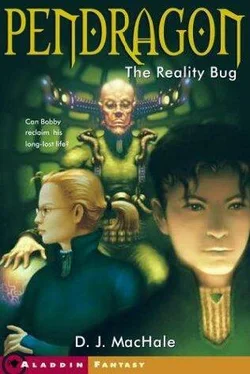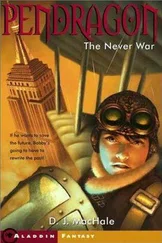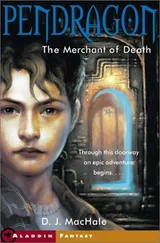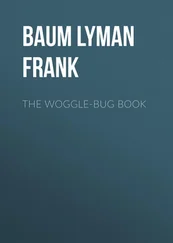D. MacHale - The Reality Bug
Здесь есть возможность читать онлайн «D. MacHale - The Reality Bug» весь текст электронной книги совершенно бесплатно (целиком полную версию без сокращений). В некоторых случаях можно слушать аудио, скачать через торрент в формате fb2 и присутствует краткое содержание. Жанр: Фантастика и фэнтези, на английском языке. Описание произведения, (предисловие) а так же отзывы посетителей доступны на портале библиотеки ЛибКат.
- Название:The Reality Bug
- Автор:
- Жанр:
- Год:неизвестен
- ISBN:нет данных
- Рейтинг книги:4 / 5. Голосов: 1
-
Избранное:Добавить в избранное
- Отзывы:
-
Ваша оценка:
- 80
- 1
- 2
- 3
- 4
- 5
The Reality Bug: краткое содержание, описание и аннотация
Предлагаем к чтению аннотацию, описание, краткое содержание или предисловие (зависит от того, что написал сам автор книги «The Reality Bug»). Если вы не нашли необходимую информацию о книге — напишите в комментариях, мы постараемся отыскать её.
The Reality Bug — читать онлайн бесплатно полную книгу (весь текст) целиком
Ниже представлен текст книги, разбитый по страницам. Система сохранения места последней прочитанной страницы, позволяет с удобством читать онлайн бесплатно книгу «The Reality Bug», без необходимости каждый раз заново искать на чём Вы остановились. Поставьте закладку, и сможете в любой момент перейти на страницу, на которой закончили чтение.
Интервал:
Закладка:
“The building is on its side again?” I asked.
“Yes,” Zetlin answered. “All the floors are perfect cubes. That’s how they can rotate within the frame of the Barbican. The only thing different now is that each floor is side by side with the next. In position one, there is no need to climb between floors. Everything is on one level.”
“Why do you make this building turn like it does?” Loor asked.
“To keep out the uninvited, of course,” Zetlin answered.
That meant us, but I wasn’t going to start apologizing now. I walked over to the glass wall and gazed out at the dreary, black city.
“I don’t get it,” I said. “Why do you have that city out there? You could create any world you want. I’m sorry for saying this, but this whole setup is totally strange.”
Zetlin joined me at the window and looked out. “This city is a reminder,” he said softly.
“Of what?” I asked.
“Of life before Lifelight.”
“I don’t understand,” I said. “Is this where you lived?”
“In a manner of speaking,” Zetlin answered. “I was born and raised in Rubic City. It was a busy, thriving community, but I was never a part of it. I was too-what was the word they used? — I was too special to be part of the life everyone else knew.”
It was strange listening to Zetlin. He looked like a sixteen-year-old kid, but his words were that of a sad old man. It was kind of creepy.
“The directors recognized my genius from the time I was an infant,” he continued. “They predicted my superior intellect could change the future of Veelox.” He looked at me and chuckled. “They were right.”
“Then you did not live an ordinary life?” Loor asked.
“Oh, no!” Zetlin answered quickly. “I lived an extraordinary life. I was surrounded by the greatest scientific minds available. They were my teachers, but soon became my pupils. They marveled at my theories of neural-electric compatibility. It was the theory that broke down the artificial wall between thought and reality. By the time I was eight, we created the first prototype of Lifelight. It was crude, but we were able to generate visual images driven solely by brain function. That was the moment. The breakthrough. From then on, it was simply about growth.”
“But what was your life like?” I asked. “I mean, yeah, you were a genius and all, but it sounds a little… I don’t know… not fun.”
Zetlin didn’t answer. He simply looked out the window. It was slowly coming clear to me. Aja told me what it was like to grow up as a phader. Every minute was spent learning and being trained. There was no time for warmth or friendship. My guess was that Dr. Zetlin’s life had been like that, times about a thousand. This horrible, black city was the image Zetlin had of his life. His real life.
I had been wrong to think Zetlin’s fantasy was about reliving his youth. It was about having the childhood he was denied. This building he called the Barbican was his second chance at being a kid.
“I had a goal,” he finally said. “I worked on Lifelight for sixty years. It consumed me morning and night. But I kept going because I knew it would be my only chance to escape.” He pointed out through the glass. “That city. That dark, rainy cold city is there as a reminder of what life once was, and of why I will never leave the Barbican.”
I felt bad for the guy. His life was a fantasy. He had no memories of real live friends or loved ones. Everything important to him was made up in his head. Worse than that, I was going to have to tell him that it wouldn’t last.
“We need your help. Dr. Zetlin,” I said.
Zetlin pulled himself away from the window. He was suddenly a young boy again, full of energy. He hurried to the control chair and plopped down in it.
“Right,” he said. “You said something about a virus corrupting the processing code. That, I’m afraid, is impossible.”
He hit a few keys on his controller and a stream of data appeared on the large monitor overhead.
“It’s not impossible,” I insisted. “The virus has totally infected Lifelight. It mutates people’s thoughts. Instead of giving them the ideal experience, it finds what they’re afraid of and hurts them. The phaders had to suspend the grid or a lot of people would-“
“They suspended the grid?” Zetlin asked in surprise.
“Yes! All over Veelox, people are in limbo waiting-“
“I know what it means,” Zetlin snapped at me. He hit a few more keys and examined more data. He then stood up and announced, “I see no evidence of anything wrong.”
“That’s because your jump is isolated,” I said. “Look, I’m on shaky ground here. I don’t really know how this works.”
“Then what are you doing here?” he demanded. “What kind of phader are you?”
“We’re not phaders,” I answered nervously. “We’re here to tell you that unless we get the origin code, millions of people across Veelox are going to die.”
Zetlin looked me square in the eye. “You have not convinced me,” he said. “I believe this virus does not exist; therefore I will not give you the origin code. Good-bye.”
Our mission was about to fail miserably. I had no idea of what to say or do to turn it around. But then we heard a familiar voice come from across the room.
“The virus is real,” it said.
We all spun to see Aja. “I know it’s real, because I created it. I’m a phader, and I may be responsible for the deaths of millions of people across Veelox.”
(CONTINUED)
VEELOX
“I know you!” Zetlin said to Aja. “You’re one of the phaders from Rubic City. What is going on here? Why have these people invaded my privacy?”
Aja looked nervous. She was facing the big boss and didn’t have good things to tell him.
“My name is Aja Killian,” she said, her voice cracking. “I apologize. Dr. Zetlin. I would never think of entering your jump if it weren’t a dire emergency. I sent my friends to find you because I need to be in the Alpha Core to hold back the Reality Bug.”
“Reality Bug?” Zetlin shouted angrily. He looked like his head was about to explode. For a second I thought he was going to really tee off on Aja, but he got his emotions under control and spoke calmly. “Please explain,” he demanded.
Aja hesitated. I’m sure the idea of telling the most important man in the history of Veelox that his invention was on the verge of blowing a major fuse was pretty tough. Aja’s rock-solid self-confidence was looking pretty shaky.
“It’s okay, Aja,” I said, trying to give her encouragement. “Tell him what’s going on.”
“Veelox is in danger,” she said nervously. “Dr. Zetlin, since you jumped into Lifelight, the people of Veelox have abandoned reality. They prefer to live in the fantasy of Lifelight than in their own lives.”
“I don’t blame them,” Zetlin said.
“But you should!” Aja said with passion. “Your invention was supposed to give people a break from reality, not replace it. Our cities are abandoned. Food is disappearing. People don’t communicate with real people anymore, they’re too busy living inside their own heads and creating characters to act in their own personal dramas. Nothing is happening. Nothing is moving forward. Nothing is real. Veelox is dead.”
Zetlin dismissed this and asked, “What is this Reality Bug?”
Now came the really tough part for Aja. I hoped she wouldn’t get into the whole story about Travelers and Saint Dane, because right now, it didn’t matter.
“I couldn’t stand to let Veelox die,” she said. “So I wrote a program. The idea was to make the jumps less than perfect. The program attached to the data stream of each jumper to alter the experience slightly. I thought that if the jumps became less than perfect, people wouldn’t spend so much time in them and would choose to return to their real lives.”
Читать дальшеИнтервал:
Закладка:
Похожие книги на «The Reality Bug»
Представляем Вашему вниманию похожие книги на «The Reality Bug» списком для выбора. Мы отобрали схожую по названию и смыслу литературу в надежде предоставить читателям больше вариантов отыскать новые, интересные, ещё непрочитанные произведения.
Обсуждение, отзывы о книге «The Reality Bug» и просто собственные мнения читателей. Оставьте ваши комментарии, напишите, что Вы думаете о произведении, его смысле или главных героях. Укажите что конкретно понравилось, а что нет, и почему Вы так считаете.












